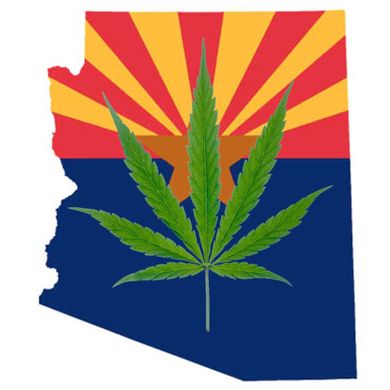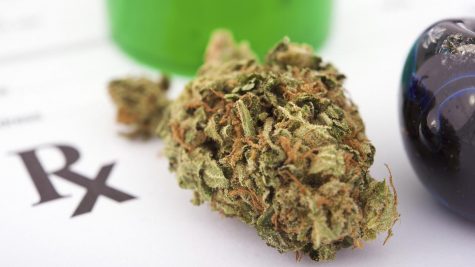Arizona Court rejects immunity argument made by patients who consumed cannabis in their car
Driving under the consumption of cannabis – regardless of its form – is a criminal offence in Arizona

The Arizona Court of Appeals has charged two medical cannabis patients with misdemeanor convictions for consuming the therapeutic plant inside a parked car. Being enrolled in Arizona’s medical cannabis program does not mean that patients are exempt from punishment if caught consuming weed in a vehicle, whether the vehicle is moving or not.
Two residents of “the Copper State” found themselves face-to-face with a court judge on Thursday, May 9, after being spotted smoking a joint inside a parked car close to a music festival in the metropolitan area of Mesa.
Medical cannabis patients caught smoking joint in car will not be granted immunity
Matthew and Eleanor Tagge were casually consuming cannabis inside their car when they were unexpectedly clocked by the police. Lack of understanding about Arizona’s medical cannabis rules meant that the couple did not fear that they were committing a crime, even though they actually were.
So long as the environment in which a medical cannabis patient chooses to consume their medicine is considered a completely private area, the Arizona Court of Appeals confirms that it is acceptable for cardholders to puff the herb. However, the couple was caught consuming cannabis on public grounds, just a short distance from a music event that was being held in Mesa.
Based on the details of this Arizona Court ruling, the couple was denied immunity, despite the fact that they are both official members of the state’s medical cannabis program. While the Tagge’s are each in possession of state-issued medical cannabis cards, they cannot legally consume weed in a publicly parked vehicle.
Medical cannabis patients in Arizona not granted immunity in cars or public spaces
 Driving under the consumption of cannabis, regardless of its form, is a criminal offense in Arizona. It is just as illegal to consume cannabis in a car, even if the consumer is not driving. Although it is not possible to sidestep the long arm of the law, Arizona’s medical cannabis patients can indulge in a wide range of pharmaceutical pot products as part of the program; privately, of course.
Driving under the consumption of cannabis, regardless of its form, is a criminal offense in Arizona. It is just as illegal to consume cannabis in a car, even if the consumer is not driving. Although it is not possible to sidestep the long arm of the law, Arizona’s medical cannabis patients can indulge in a wide range of pharmaceutical pot products as part of the program; privately, of course.
Individuals who have been given a recommendation from a certified healthcare practitioner to receive medical cannabis as a treatment can consume the plant in more than just its a flower form. Capsules, topical solutions, sprays, suppositories and even dissolvable cannabinoid-containing products can be used by the state’s enrolled patients.
Arizona’s medical cannabis market had a slow start
 A vote to legalize medical cannabis in Arizona was initially approved back in 1996, before being overthrown by lawmakers. Cannabis advocates in the state continued to push for legalization of the plant for medicinal purposes over the ensuing years. Proposition 203 almost passed eight years later, when legalization gained 42.7 percent of the vote.
A vote to legalize medical cannabis in Arizona was initially approved back in 1996, before being overthrown by lawmakers. Cannabis advocates in the state continued to push for legalization of the plant for medicinal purposes over the ensuing years. Proposition 203 almost passed eight years later, when legalization gained 42.7 percent of the vote.
Then, in 2010, voters managed to tip the voting scale just enough for Prop. 203 to pass with 50.13 percent of the vote. Under the details of Arizona’s medical cannabis bill, it is not possible for an individual to obtain cannabis-based treatments as part of the State’s medical cannabis program unless they have been diagnosed with a qualifying condition.
Once a doctor or healthcare practitioner has diagnosed an individual with an ailment/condition listed under the terms of Prop. 203, they can obtain their medicine from a licensed dispensary. Some of the qualifying conditions listed as requirements for medical cannabis in Arizona are cancer, glaucoma, Crohn’s disease, epileptic seizures, post-traumatic stress disorder (PTSD) and hepatitis C.
Arizona’s nonprofit state-licensed dispensaries launched medical cannabis sales in December of 2012, but the plant remains illegal for recreational purposes; Proposition 205 was rejected in November 2016.
Approximately 23.16 per 1,000 residents were enrolled in the state’s program in 2018, based on statistics gathered by ProCon.org. During that same year, 60 tons of medicinal cannabis products were consumed by patients in the state, making last year’s consumption rate a record high.










